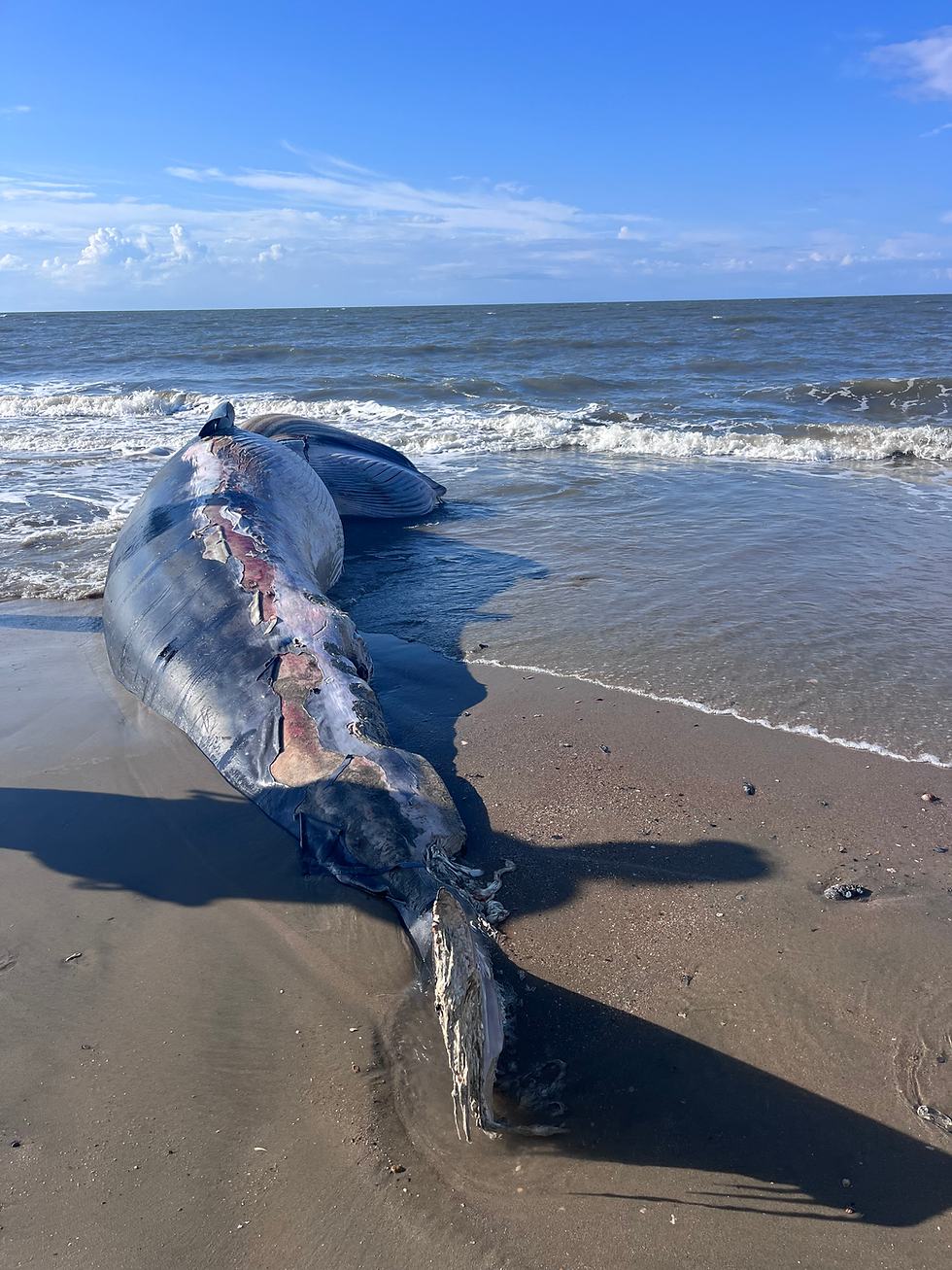May 3rd - Minke Whale Stranding in Cape Romain
- Nicole Principe
- May 3, 2024
- 2 min read
Updated: Nov 1, 2024
On May 3rd, we got a report from Jerry Tupacz (USFW) regarding a dead whale in Cape Romain. Photos provided confirmed it was a freshly dead adult minke whale (Balaenoptera acutorostrata) on the beach. Not only is this a rare species to strand in South Carolina, but this species is currently in an Unusual Mortality Event in the Atlantic area, so getting out to collect samples was crucial. However, due to the unavailability of personnel and a boat, we were not able to get out to it until May 5th.

That morning, J. Tupacz took the team (W. McFee (NOAA), L. Rust, N. Principe, Bonnie Ertel (NOAA/CSS), Colin Perkins-Taylor (NOAA/CSS), and Jack Strohman (LMMN volunteer)) to the island for examination. Upon arriving to the scene, the position of the carcass had changed to where it was now lying on its left side, with its head facing the surf. It had progressed in decomposition.

We quickly went to work collecting as many measurements and samples as we could. The main goals was to check for any signs of a Brucellosis infection within the joints and lungs, examine the GI tract, and determine if there was any sign of human interaction, such as a vessel strike. Opening up a large whale is tough work! Removing the thick layers of blubber and getting through the ribs is difficult and requires multiple hands working together. We also made sure to get plenty of pictures of everything (thanks Colin!).



Due to it's state of decomposition, we were limited in the number of viable samples we could collect, but were ultimately happy with what we were able to get. After a long morning, the team headed back with samples in tow.

A tired team waiting for our boat ride back to the mainland
We did not find any significant findings during the necropsy and interestingly, histopathology results also came back inconclusive. Regardless, the samples we have will be archived in case we want to do any further testing.
Thank you to everyone who helped on this case!
A Quick Note on the Minke Whale Unusual Mortality Event (UME)
Since January 2017, elevated minke whale (Balaenoptera acutorostrata) mortalities have occurred along the Atlantic coast from Maine through South Carolina. This was only the second reported stranding of a minke whale in South Carolina (and the second large whale case for our team this year - pretty rare!).
Preliminary findings in several minke whales stranded in other states have shown evidence of human interactions or infectious diseases. These findings are not consistent across all of the whales examined, so more research is needed. As part of the UME investigation process, NOAA is assembling an independent team of scientists to coordinate with the Working Group on Marine Mammal Unusual Mortality Events to review the data collected, sample stranded whales, and determine the next steps for the investigation.
Comments